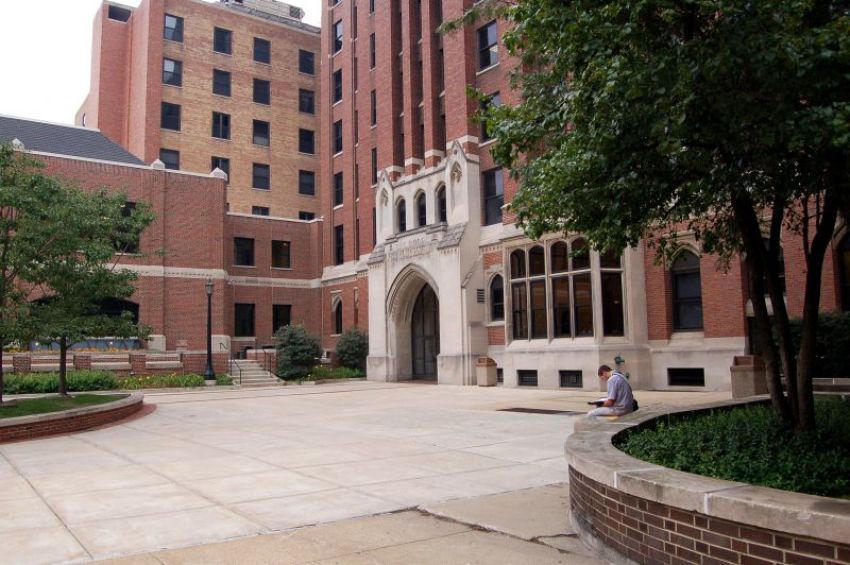Moody Bible Institute sex discrimination lawsuit can proceed, appeals court rules

A lawsuit accusing Moody Bible Institute of engaging in sex discrimination in violation of federal anti-discrimination law can proceed, a divided appeals court panel has ruled.
A three-judge panel of the 7th U.S. Circuit Court of Appeals concluded in a ruling Monday that a lawsuit filed by former employee Janay Garrick can continue against the Chicago-based institution.
Garrick, who taught communications courses for three years at Moody before her firing in 2017, filed a lawsuit claiming sex discrimination and other Title VII civil rights violations. She accused the Christian school of mistreating her on the basis of gender, alleging personal harassment and opposition over her egalitarian views on gender that women can be pastors.
Moody asked the appellate court to dismiss the case after a lower court refused to do so.
Circuit Judge Amy St. Eve, a Trump appointee, authored the majority opinion, rejecting the argument that Moody was protected by the church autonomy doctrine, which prevents secular courts from interfering in distinctly religious controversies.
"The church autonomy doctrine does not, however, bar courts from adjudicating all disputes involving a religious institution," wrote St. Eve. "Courts may exercise authority when the resolution does not require inquiry into doctrinal disputes."
"While certain distinctions between men and women will be off-limits because they implicate complementarianism — for example, opportunities to speak at chapel and the removal of Garrick's ministerial title from her resume — many distinctions will not."
St. Eve wrote the investigation into "whether male employees were subject to peer reviews, rebuked for speaking out against perceived sexism on campus, denied reduced teaching loads while completing terminal degrees, or asked to create new courses, will not subject Moody's doctrine to judicial second-guessing."
"No court has ever held that the First Amendment doctrine of church autonomy establishes a constitutional right to immunity from trial in cases where non-ministerial employees allege non-religious discrimination," she continued.
"Because Moody's appeal falls outside of the collateral order doctrine's narrow and selective class of claims subject to interlocutory review, we DISMISS the appeal for lack of jurisdiction without reaching the merits of Moody's Title VII and First Amendment defenses."
Circuit Judge Michael Brennan, another Trump appointee, authored a dissenting opinion in which he argued that "courts cannot adjudicate employment claims involving decisions that turn on matters of faith, doctrine, and internal governance."
"Garrick will ask a jury to attribute secular, sex-based motivations to Moody, even while admitting that Moody had religious motivations and that the parties had a religious dispute about sex-based religious distinctions for religious leadership roles," wrote Brennan.
"Her claims will thus entangle the courts and a jury in questions over the development, meaning, and strength of Moody's church-leadership doctrines; its internal religious deliberations regarding Garrick's rejection of its doctrine; and its religious decisions involving other professors and students that violated its doctrine."
Americans United for Separation of Church and State, which helped to represent Garrick, celebrated the panel ruling as a victory and "a critical step in our fight to stop the weaponization of religious freedom."
"Our courts should not allow religious freedom to be distorted as a license to discriminate against women and deny them basic civil rights," said Americans United President Rachel Laser in a statement released Tuesday.
"This case brings to light a dangerous trend: backed by a shadowy network of conservative legal activists, religious employers are urging courts to rewrite the rules of legal procedure so that they can weaponize religious freedom against their employees. Americans United is not going to let that happen."
It's unclear what Laser meant by "shadowy" legal activists as Moody is represented by the prominent religious liberty law firm Becket, which has successfully argued First Amendment cases before the U.S. Supreme Court and posts information about its cases available to the public online.
"If the separation of church and state means anything, it means that the federal government can't punish a religious college for its beliefs over who should serve as a pastor, priest, imam, or rabbi," said Daniel Blomberg, vice president and senior counsel at Becket, in a statement in July.
"Religious groups should be free to make up their own minds on clergy qualifications without judges or juries putting a finger on the scales."
Garrick filed a lawsuit in January 2018, which a district court initially dismissed, citing concerns about interfering with an internal religious dispute.
After Garrick amended her complaint, the district court decided in November 2021 that the case could proceed to determine whether Moody had violated civil rights law.
Moody filed an appeal before the 7th Circuit last year, arguing that it was immune from prosecution due to its held religious views on the roles of men and women in the church.



























